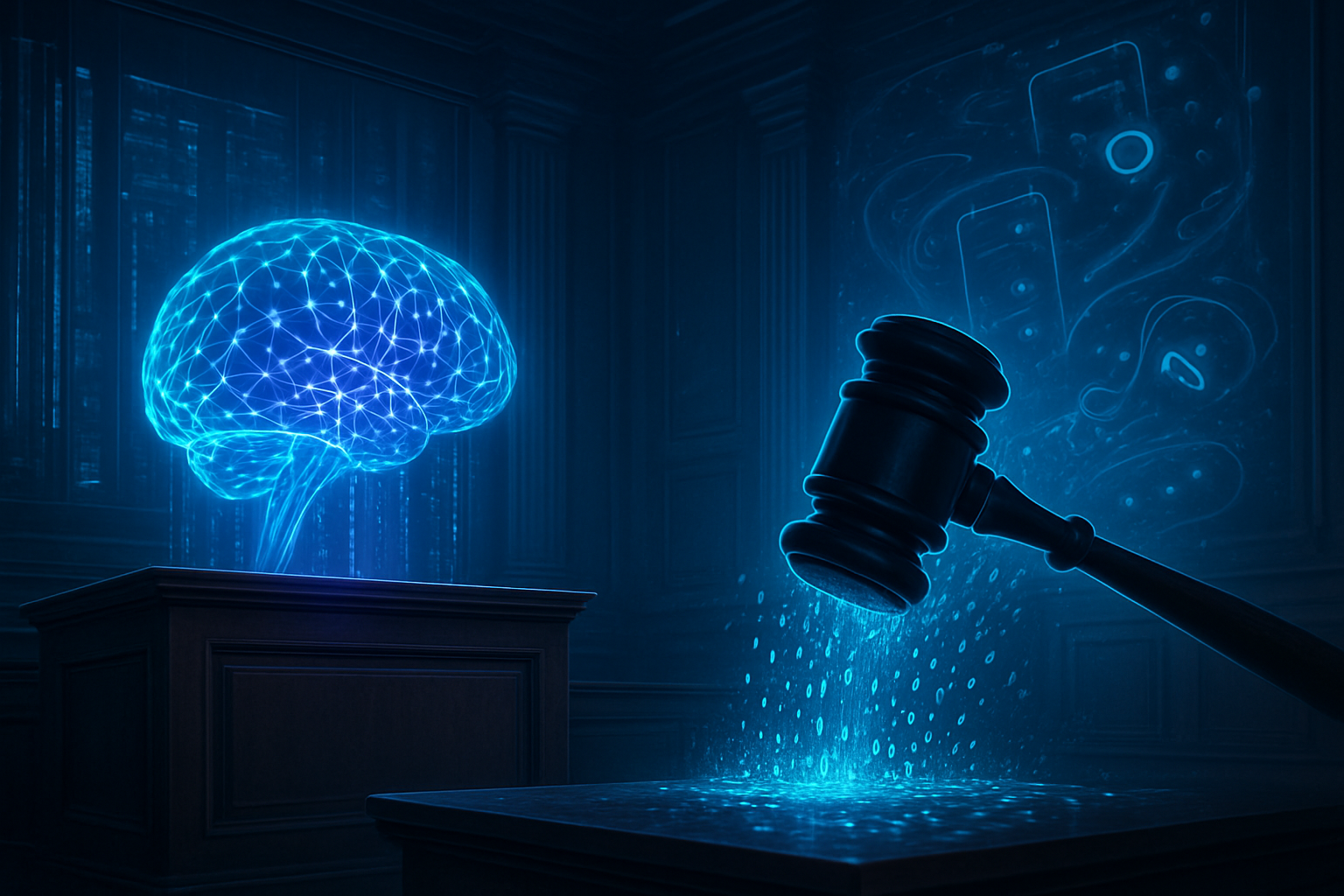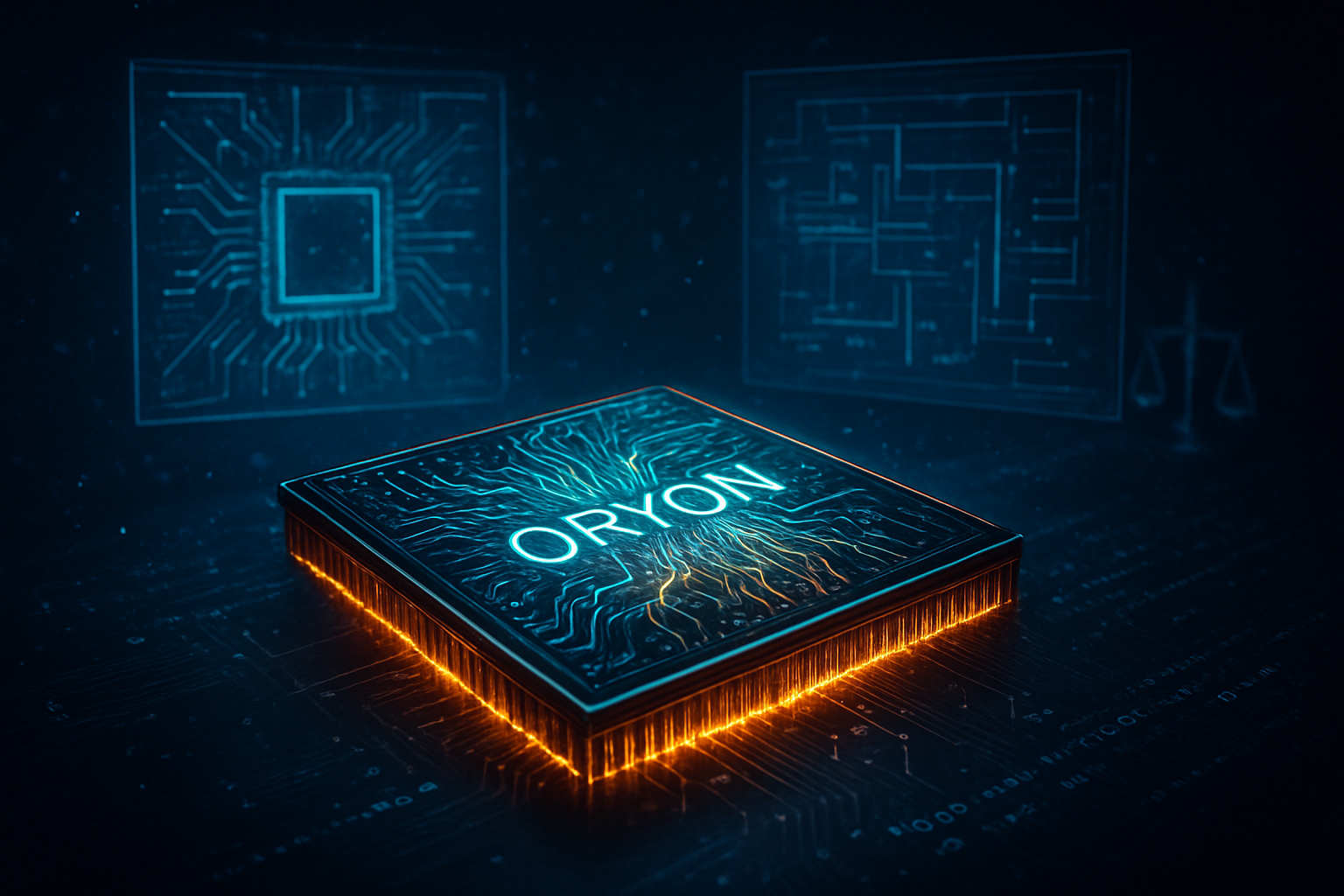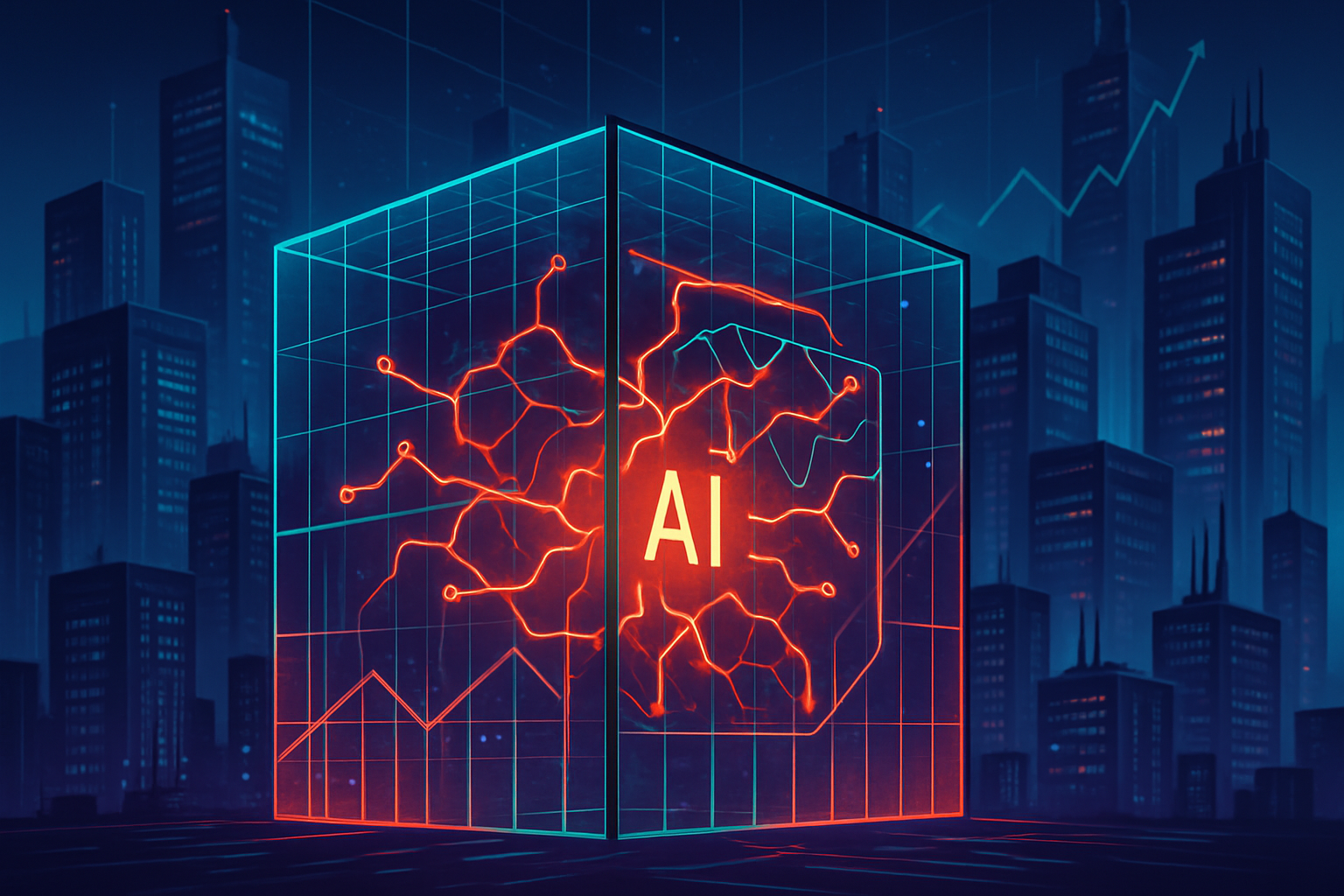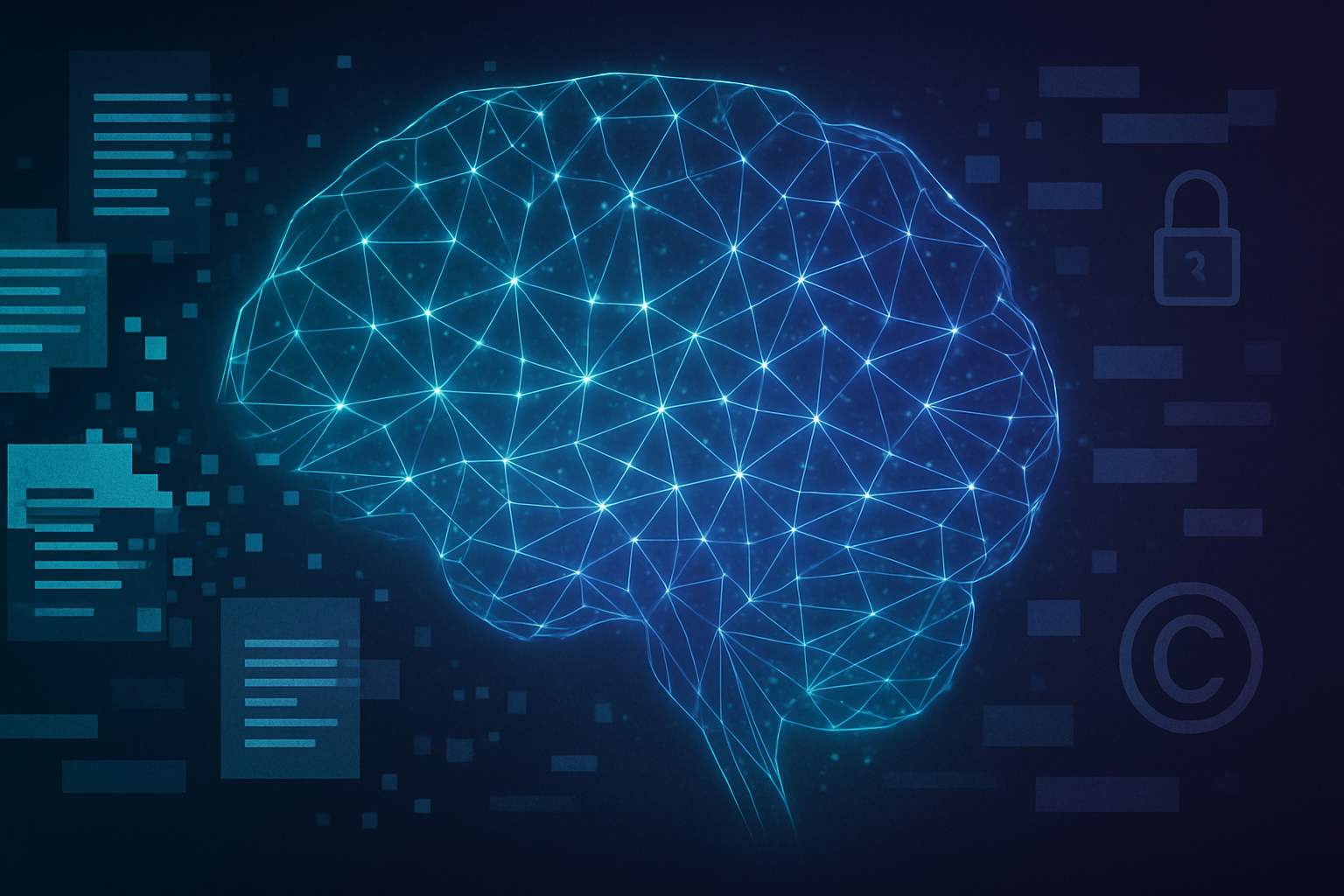In a courtroom in Los Angeles today, the "attention economy" finally went on trial. As of January 27, 2026, jury selection has officially commenced in the nation’s first social media addiction trial, a landmark case that could fundamentally rewrite the legal responsibilities of tech giants for the psychological impact of their artificial intelligence. The case, K.G.M. v. Meta et al., represents the first time a jury will decide whether the sophisticated AI recommendation engines powering modern social media are not just neutral tools, but "defective products" engineered to exploit human neurobiology.
This trial marks a watershed moment for the technology sector, as companies like Meta Platforms, Inc. (NASDAQ: META) and Alphabet Inc. (NASDAQ: GOOGL) defend their core business models against claims that they knowingly designed addictive feedback loops. While ByteDance-owned TikTok and Snap Inc. (NYSE: SNAP) reached eleventh-hour settlements to avoid the spotlight of this first bellwether trial, the remaining defendants face a mounting legal theory that distinguishes between the content users post and the AI-driven "conduct" used to distribute it. The outcome will likely determine if the era of unregulated algorithmic curation is coming to an end.
The Science of Compulsion: How AI Algorithms Mirror Slot Machines
The technical core of the trial centers on the evolution of AI from simple filters to "variable reward" systems. Unlike the chronological feeds of the early 2010s, modern recommendation engines utilize Reinforcement Learning (RL) models that are optimized for a single metric: "time spent." During the pre-trial discovery throughout 2025, internal documents surfaced revealing how these models identify specific user vulnerabilities. By analyzing micro-behaviors—such as how long a user pauses over an image or how frequently they check for notifications—the AI creates a personalized "dopamine schedule" designed to keep the user engaged in a state of "flow" that is difficult to break.
Plaintiffs argue that these AI systems function less like a library and more like a high-tech slot machine. The technical specifications of features like "infinite scroll" and "pull-to-refresh" are being scrutinized as deliberate psychological triggers. These features, combined with AI-curated push notifications, create a "variable ratio reinforcement" schedule—the same mechanism that makes gambling so addictive. Experts testifying in the case point out that the AI is not just predicting what a user likes, but is actively shaping user behavior by serving content that triggers intense emotional responses, often leading to "rabbit holes" of harmful material.
This legal approach differs from previous attempts to sue tech companies, which typically targeted the specific content hosted on the platforms. By focusing on the "product architecture"—the underlying AI models and the UI/UX features that interact with them—lawyers have successfully bypassed several traditional defenses. The AI research community is watching closely, as the trial brings the "Black Box" problem into a legal setting. For the first time, engineers may be forced to explain exactly how their engagement-maximization algorithms prioritize "stickiness" over the well-being of the end-user, particularly minors.
Corporate Vulnerability: A Multi-Billion Dollar Threat to the Attention Economy
For the tech giants involved, the stakes extend far beyond the potential for multi-billion dollar damages. A loss in this trial could force a radical redesign of the AI systems that underpin the advertising revenue of Meta and Alphabet. If a jury finds that these algorithms are inherently defective, these companies may be legally required to dismantle the "discovery" engines that have driven their growth for the last decade. The competitive implications are immense; a move away from engagement-heavy AI curation could lead to a drop in user retention and, by extension, ad inventory value.
Meta, in particular, finds itself at a strategic crossroads. Having invested billions into the "Metaverse" and generative AI, the company is now being forced to defend its legacy social platforms, Instagram and Facebook, against claims that they are hazardous to public health. Alphabet’s YouTube, which pioneered the "Up Next" algorithmic recommendation, faces similar pressure. The legal costs and potential for massive settlements—already evidenced by Snap's recent exit from the trial—are beginning to weigh on investor sentiment, as the industry grapples with the possibility of "Safety by Design" becoming a mandatory regulatory requirement rather than a voluntary corporate social responsibility goal.
Conversely, this trial creates an opening for a new generation of "Ethical AI" startups. Companies that prioritize user agency and transparent, user-controlled filtering may find a sudden market advantage if the incumbent giants are forced to neuter their most addictive features. We are seeing a shift where the "competitive advantage" of having the most aggressive engagement AI is becoming a "legal liability." This shift is likely to redirect venture capital toward platforms that can prove they offer "healthy" digital environments, potentially disrupting the current dominance of the attention-maximization model.
The End of Immunity? Redefining Section 230 in the AI Era
The broader significance of this trial lies in its direct challenge to Section 230 of the Communications Decency Act. For decades, this law has acted as a "shield" for internet companies, protecting them from liability for what users post. However, throughout 2025, Judge Carolyn B. Kuhl and federal Judge Yvonne Gonzalez Rogers issued pivotal rulings that narrowed this protection. They argued that while companies are not responsible for the content of a post, they are responsible for the conduct of their AI algorithms in promoting that post and the addictive design features they choose to implement.
This distinction between "content" and "conduct" is a landmark development in AI law. It mirrors the legal shifts seen in the Big Tobacco trials of the 1990s, where the focus shifted from the act of smoking to the company’s internal knowledge of nicotine’s addictive properties and their deliberate manipulation of those levels. By framing AI algorithms as a "product design," the courts are creating a path for product liability claims that could affect everything from social media to generative AI chatbots and autonomous systems.
Furthermore, the trial reflects a growing global trend toward digital safety. It aligns with the EU’s Digital Services Act (DSA) and the UK’s Online Safety Act, which also emphasize the responsibility of platforms to mitigate systemic risks. If the US jury finds in favor of the plaintiffs, it will serve as the most significant blow yet to the "move fast and break things" philosophy that has defined Silicon Valley for thirty years. The concern among civil libertarians and tech advocates, however, remains whether such rulings might inadvertently chill free speech by forcing platforms to censor anything that could be deemed "addicting."
Toward a Post-Addiction Social Web: Regulation and "Safety by Design"
Looking ahead, the near-term fallout from this trial will likely involve a flurry of new federal and state regulations. Experts predict that the "Social Media Adolescent Addiction" litigation will lead to the "Safety by Design Act," a piece of legislation currently being debated in Congress that would mandate third-party audits of recommendation algorithms. We can expect to see the introduction of "Digital Nutrition Labels," where platforms must disclose the types of behavioral manipulation techniques their AI uses and provide users with a "neutral" (chronological or intent-based) feed option by default.
In the long term, this trial may trigger the development of "Personal AI Guardians"—locally-run AI models that act as a buffer between the user and the platform’s engagement engines. These tools would proactively block addictive feedback loops and filter out content that the user has identified as harmful to their mental health. The challenge will be technical: as algorithms become more sophisticated, the methods used to combat them must also evolve. The litigation is forcing a conversation about "algorithmic transparency" that will likely define the next decade of AI development.
The next few months will be critical. Following the conclusion of this state-level trial, a series of federal "bellwether" trials involving hundreds of school districts are scheduled for the summer of 2026. These cases will focus on the economic burden placed on public institutions by the youth mental health crisis. Legal experts predict that if Meta and Alphabet do not win a decisive victory in Los Angeles, the pressure to reach a massive, tobacco-style "Master Settlement Agreement" will become nearly irresistible.
A Watershed Moment for Digital Rights
The trial that began today is more than just a legal dispute; it is a cultural and technical reckoning. For the first time, the "black box" of social media AI is being opened in a court of law, and the human cost of the attention economy is being quantified. The key takeaway is that the era of viewing AI recommendation systems as neutral or untouchable intermediaries is over. They are now being recognized as active, designed products that carry the same liability as a faulty car or a dangerous pharmaceutical.
As we watch the proceedings in the coming weeks, the significance of this moment in AI history cannot be overstated. We are witnessing the birth of "Algorithmic Jurisprudence." The outcome of the K.G.M. case will set the precedent for how society holds AI developers accountable for the unintended (or intended) psychological consequences of their creations. Whether this leads to a safer, more intentional digital world or a more fragmented and regulated internet remains to be seen.
The tech industry, the legal community, and parents around the world will be watching the Los Angeles Superior Court with bated breath. In the coming months, look for Meta and Alphabet to introduce new, high-profile "well-being" features as a defensive measure, even as they fight to maintain the integrity of their algorithmic engines. The "Age of Engagement" is on the stand, and the verdict will change the internet forever.
This content is intended for informational purposes only and represents analysis of current AI developments.
TokenRing AI delivers enterprise-grade solutions for multi-agent AI workflow orchestration, AI-powered development tools, and seamless remote collaboration platforms.
For more information, visit https://www.tokenring.ai/.



